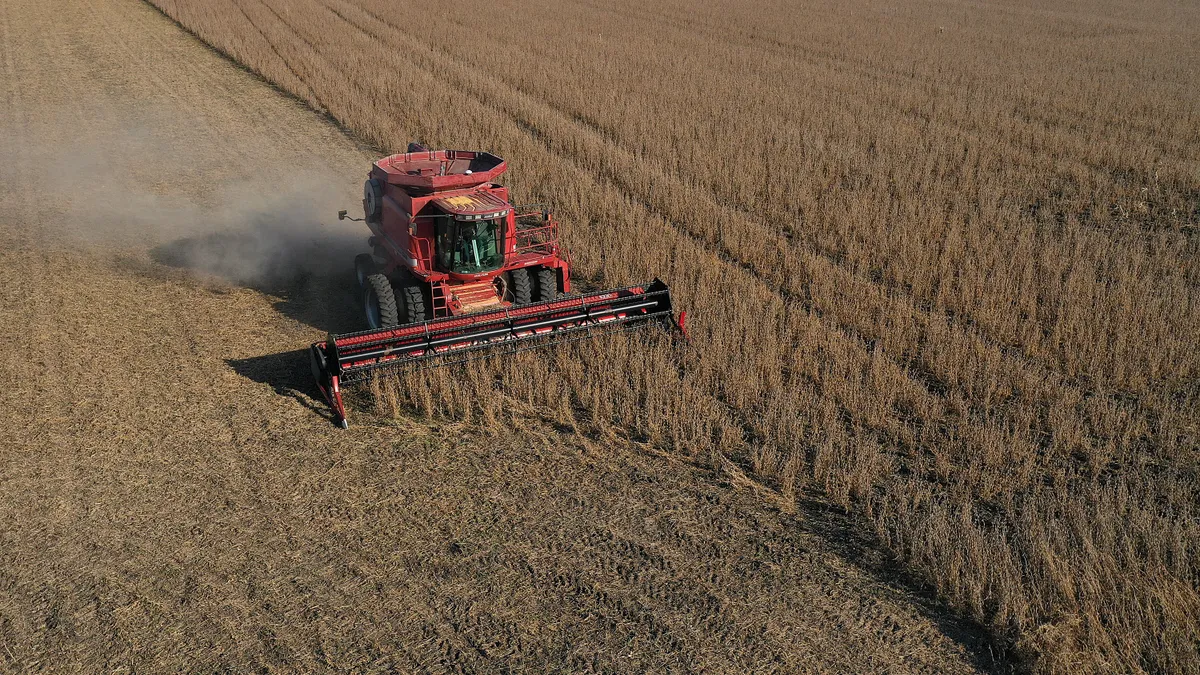Dive Brief:
- Agricultural trading giant Bunge is on the hunt for smaller acquisitions following its planned $8.2 billion purchase of Canada's largest grain handler Viterra, CEO Gregory Heckman said on a Wednesday earnings call.
- The company continues to "evaluate and execute on our pipeline of bolt-on M&A opportunities" as it works through the process of combining with Viterra, Heckman said.
- In June, Bunge announced it would acquire Viterra, a move that would create an agri-trading powerhouse second only to Cargill by revenue. The deal is likely to face antitrust challenges, as Bunge is already the world's largest oilseed processor.
Dive Insight:
Bunge is looking for small acquisitions even as the company is expected to face regulatory scrutiny over its planned purchase of Viterra.
The agri-trader is "finding a good pipeline of smaller bolt-on M&A" as higher interest rates push more firms to sell, Chief Financial Officer John Neppl said on the earnings call. However, integrating with Viterra remains the "No. 1 priority."
The Viterra deal would integrate two of the world's largest operators of grain shipping ports and crop processing plants. The combined company would own 55 port terminals and 125 crushing and refining facilities, according to an investor presentation.
The acquisition will also expand Bunge's presence in the U.S., Canada, Australia and Argentina, according to the presentation. Bunge is the largest exporter of corn and soybeans in Brazil.
Beyond expanding its geographic footprint, Bunge expects Viterra to help the company meet growing demand for biofuels and advance projects related to sustainable and regenerative agriculture.
"Together with Viterra, we will be able to utilize our combined platforms and capabilities to more broadly and rapidly expand our work to support sustainable and transparent value chains," Heckman said on the earnings call.
Bunge is one of the four largest agriculture companies in the world, along with Cargill, Archer-Daniels-Midland and Louis Dreyfus. Collectively known as "ABCD," they are estimated to control more than 70% of the world's grain market.











